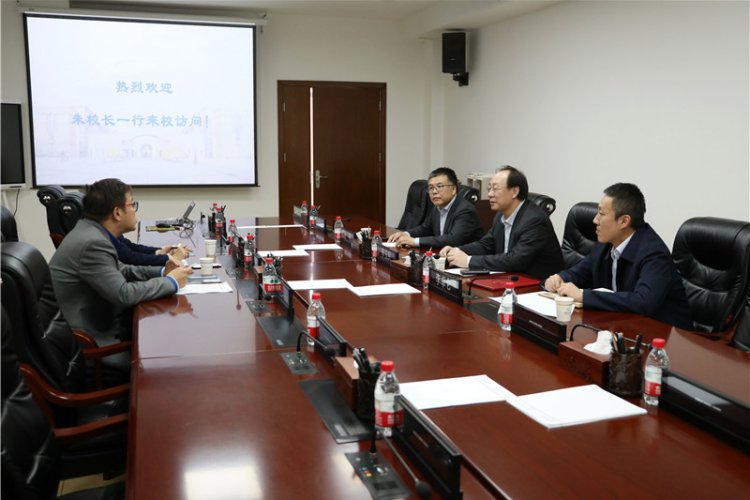
On the morning of July 11th , an inauguration meeting for the Sociocultural Research Program in Western China for Cross-Straits Students was held by the School of Chinese Language and Literature in Room 114 of Yifu Science Hall. Since LZU signed a cooperation agreement with Tamkang University (Taiwan) in December 2011, an in-depth two-way communication between the schools of Chinese language and literature at the two universities has started, giving birth to today’s program, a substaintial achievement for cooperation and exchange including 4 teachers and 12 students from the School of Chinese Language and Literature, Cuiying Honors College, and the School of Geological Sciences and Mineral Resources at LZU, and 4 teachers and 7 students from the School of Chinese Language and Literature at Tamkang University. In the following seven days, they will carry out cultural investigation and research across Gansu and Qinghai provinces in three stages with their teachers’ help in the form of three research groups, namely, " Immigrant culture and customs of Hexi Corridor”, “Plastic arts of cave temples and Buddhism transmission toward east”, and “East and west: the culture space and geographical space" .
Under the support of the Office of Hong Kong, Macao and Taiwan Affairs, and Cuiying Honors College, the School of Chinese Language and Literature at LZU carefully organized the program with both academic characteristics and social practice, and played the active role of young teachers and students, striving to contribute to the work of discipline construction and exchange. The program encourages dialogues between cross-straits students based on their own cultural background, to think about the problems found in western China in a comparative perspective of Taiwan's domestic problems and put forward constructive suggestions for the development of economy, culture, society and nature in western China; for the mainland students, the program also urges them to launch thorough understanding of Taiwan's history and present situation, thus to improve the understanding of the development of western China.




